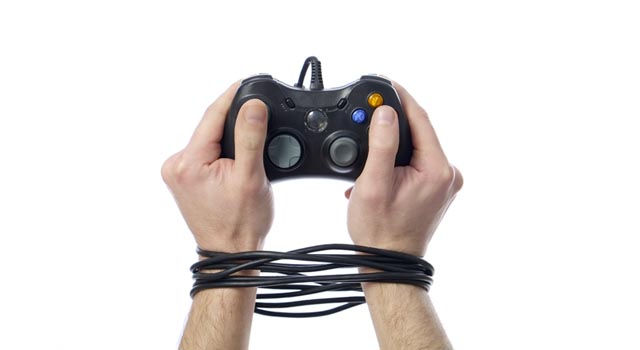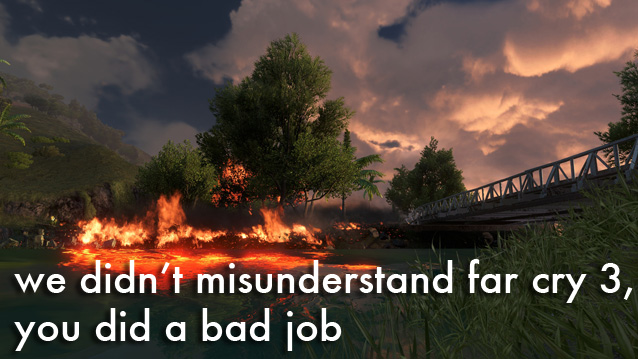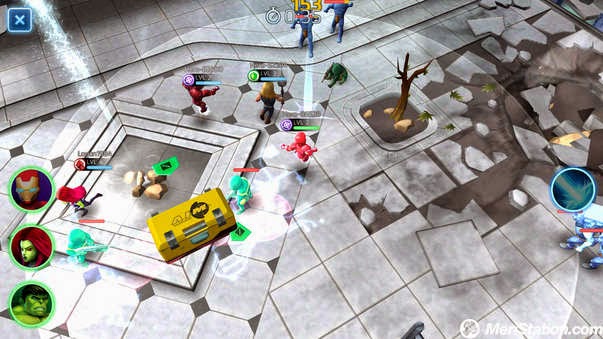

Video game addiction is a serious issue. As a gamer myself, I’m aware that the media likes to exaggerate, and I agree that the subject of video game addiction has been blown out of proportion in the past, but that doesn’t mean it isn’t real. I’m also aware that video game addiction may not be as serious as, say, a drug addiction, but that doesn’t mean it isn’t serious. I know this because I am an ex-video game addict.
I think it’s important to identify video game addiction where it exists, and to help addicts on their road to recovery. Like all addictions, this one can be detrimental to one’s lifestyle if left unchecked. I don’t want to be a fearmonger here, but a little bit of awareness can be a good thing. If you’re the parent of one who might be an addict, I hope this post helps you to better understand. If you’re a possible addict, I hope this can be a wake-up call.

Video game addiction is not an officially recognized disorder, which means it hasn’t been defined by the Diagnostic and Statistical Manual of Mental Disorders (DSM), but there is evidence that could point toward an uncontrollable urge and compulsion to play video games. This compulsion could be for a specific game OR just any game in general, and the reasons behind the compulsion could be one of many.
For the most part, video game addiction can be seen as similar to Internet addiction and smartphone addiction, both of which are subsets of something called novelty addiction. With technology becoming so engrained in our daily lives, we’re constantly being bombarded by stimuli from all directions. The novelty of playing a video game triggers various psychological responses in our brains, so much so that we can grow accustomed to chasing those triggers.
This manifests itself as a compulsive need to always be playing. Perhaps the compulsion is to grind more levels in an MMORPG. In competitive games, it could be a desire to beat players and earn a higher ranking. Typically, this compulsion might be a way for the addict to cope with stress, whether from school, work, or social pressures, but this is not always the case.
Do not confuse video game addiction with an introverted personality. Do not confuse it with genuine enjoyment of video games. The term addiction comes into play when the person fulfills three criteria:

How much is too much? You can be an avid gamer, even a hardcore gamer, without being an addict. After all, enthusiasm and passion for other hobbies don’t automatically translate into an addiction, so why should it be different here? The difficulty is in drawing the line: when does enjoyment turn into an addiction?
Whether you’re a gamer or the parent of a gamer, here are some warning signs you should be looking for:
Note that these warning signs should only be considered if they are displayed in a prolonged and frequent way. Skipping out on a social event every once in a while is fine, but never going out could be problematic. Similarly, it’s important to consider whether or not video game addiction is the core issue OR whether it points to a deeper problem, such as depression, fear, insecurity, etc.

So maybe you’ve come to terms with the fact that you’re addicted to video games, or perhaps you aren’t quite there yet but you want to know what you can do to prevent full-on addiction. Or you could be a parent of one who might be an addict, and you want to know if there’s anything you can do to help.
First, please realize that addiction can’t be forced out of somebody. External pressure might temporarily put a plug in it, but ultimately it will resurface unless the addict also applies internal motivation to overcoming it. Therefore, it doesn’t help to force someone to quit video games unless you intend to watch over them forever, not to mention the inevitable feelings of bitterness and contempt that will arise.
With that said, there are some things you can do to help stave off addiction:
All of that said, overcoming a video game addiction can be extremely difficult. It’s a psychological addiction, which some might argue is tougher than a purely physical one. You’ll find ways to rationalize it away – “It’s not as bad as alcoholism or cocaine, right? Just one game.” – but keep at it. And if you know someone who is an addict, help them out even when they fail.
Do you have any experiences with video game addiction, whether yourself, your friend, or your child? Did you do anything about it, and if so, what? Share your thoughts with us in the comments!
Image Credit: Radly J Phoenix Via Flickr, Game Shackles Via Shutterstock, Angry Gamer Via Shutterstock, Free Girl Via Shutterstock




 Dark Souls 2: All Sublime Bone Dust Locations
Dark Souls 2: All Sublime Bone Dust Locations Gerard Way plays two new songs Don’t Try / Kid Nothing in concert
Gerard Way plays two new songs Don’t Try / Kid Nothing in concert Get Even Wiki – Everything you need to know about the game .
Get Even Wiki – Everything you need to know about the game . The Dungeons of Wildstar: Dynamic Experiences and Compelling Bosses
The Dungeons of Wildstar: Dynamic Experiences and Compelling Bosses Mighty Marvel Heroes - iOS / Android review
Mighty Marvel Heroes - iOS / Android review